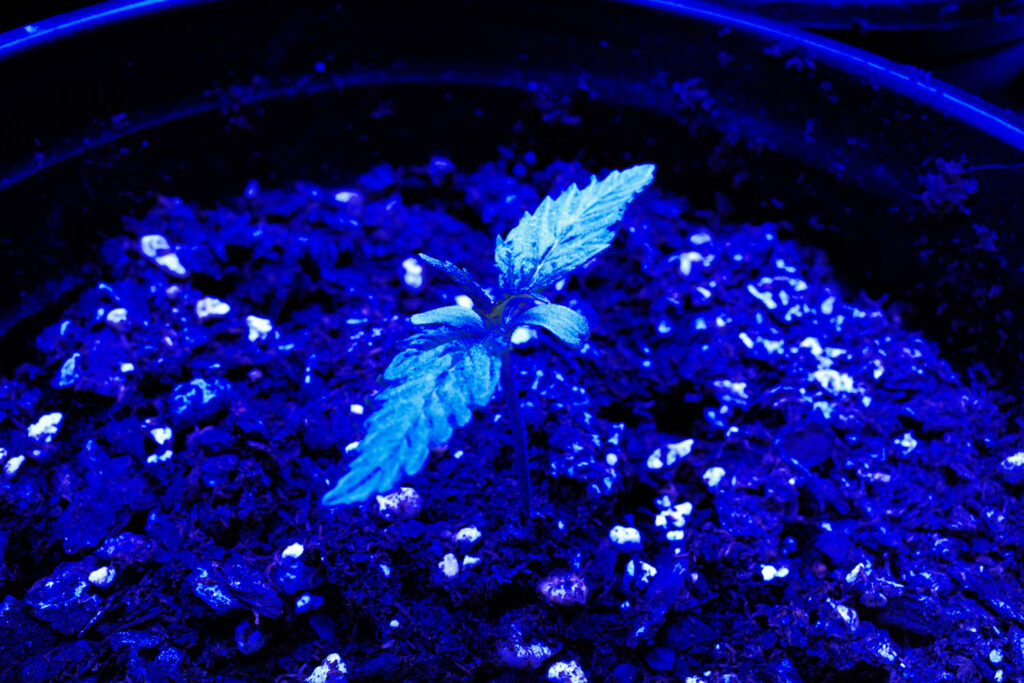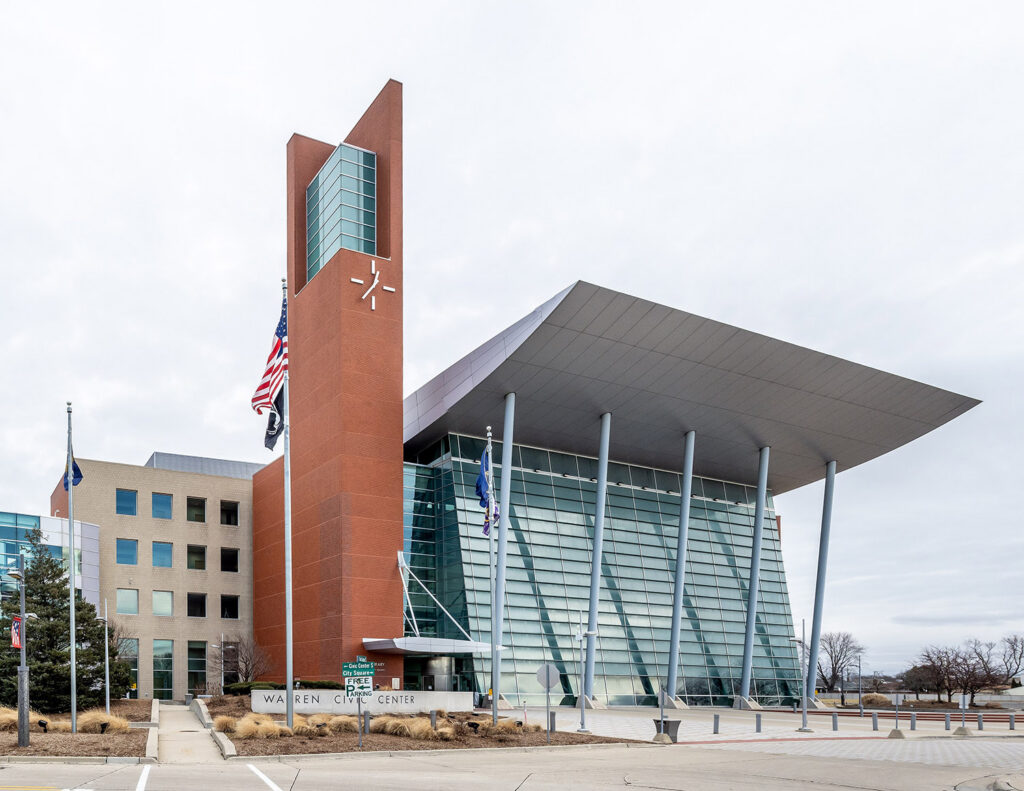A private jet lands at a small regional airport in Michigan after a long flight from Colorado. On board the plane, executives in suits speak together in hushed tones. They disembark, each carrying a small potted plant, one still illegal to transport across state lines. They personally carry their cargo to their fleet of Black SUVs and don’t stop until they’ve reached their industrial weed farm. The plants rest under the purple grow lights, waiting for the tests to begin.
Corporate cannabis is desperate, and they’ll do anything to stay in business. Shareholders will be pleased to hear the executive boards have such dedication.
It also includes turning the entire state into a gaudy carnival with weed stores on every corner. Rural areas are overwhelmed with giant weed warehouses. It’s all neon lights, purple buildings, bad music, worse mascots—eyesores as far as the eye can see. Even the skies aren’t safe, with every major sporting event in Michigan now subjected to small armadas of Cessnas towing weed store banners behind them.
Both of these have the same root cause—weed is a hard business, and they’re losing money. The economics of legal weed start to fail at scale, and the only way to stay in business is to differentiate. That’s why unique plant genetics are the hottest commodity, one worth breaking the law for. The other way is by making your storefront as flashy and ugly as humanly possible to draw foot traffic from the brain-addled Michigan stoners, who, by the way, smoke more weed per capita than residents of any other state.
They’ve been forced to take a page out of Kellogg’s book—weed faces the same basic economics as cereal. How does one company differentiate their relatively identical product from the rest of a competitive market? How does a large-scale company profit from a relatively homogenous, cheap commodity?
Look, these corporate guys quickly figured out how to grow weed plants at scale. That wasn’t enough, though; now, they need to package and process them into any number of wildly derived products—face balms, foot tinctures, lollipops, anything crazy enough to differentiate them. Even with that, prices keep falling. Weed legalization was supposed to be a tremendous business opportunity, a boon for tax revenues for the states brave enough to pass it. Yet weed seems to be the only thing that gets cheaper every year.
Weed legalization was supposed to be a tremendous business opportunity, a boon for tax revenues for the states brave enough to pass it. Yet weed seems to be the only thing that gets cheaper every year.

Enter genetics. Growers, legal as zwell as illegal, are pushing the boundaries of cannabis breeding and genetics in the search for unique outcomes. Ask any stoner—not only has the grass gotten cheaper, it’s gotten stronger, with more options and complexities. Long gone are the days of “panama red,” shipped up from Mexico, where you’d find seeds littering the bottom of the bag (or so my Dad tells me).
It’s not enough to simply grow plants and trust they’ll sell. Given the cost of industrial scale indoor farming—growing licenses and the increasingly deflationary pressures on pricing—corporate cannabis is desperate to push the limits of their products by whatever means necessary.
This tale isn’t, of course, about moral outrage. What it is, however, is a reflection of the absurdity of the current legal cannabis system, which has far more to do with creating a regulated quasi-monopoly than it does ensuring good times and chill vibes throughout the state. This isn’t a question of civil rights or freedom of choice for adults on how they spend their leisure time. It’s a question of money, plain and simple—suspend your moral arguments and consider the economics.
The problem is, the economics prove their own undoing. Weed in the wild grows like, well, a weed. The cannabis industry in India, far from being a massive regulated corporate enterprise, exists for old ladies and random travelers who rub the wild cannabis leaves between their fingers, manually extracting the THC trichomes to produce hash. This isn’t a multi-billion dollar industry—it’s a way for poor people to make a subsistence living off a crop that grows for free.

The medical system, likewise, existed mostly as dissociated networks of small-scale farmers. The corporate system, centralized to only a few major corporations with enough funding to pay for the exorbitant growing license and the immensely costly regulations on growing, can only exist within this protected monopoly. Remove all regulations, truly legalize the plant, and prices would fall to dollars per ounce.
This system can’t last—basic economics has a way of inevitably trumping regulation. The more they grow, the cheaper it becomes, the less tax revenue comes in, and the more they face pressure from growers still willing to cut costs and operate outside the legal system. This has been the case in all the states pioneering similar forms of cannabis legalization. Colorado alone saw their cannabis tax revenues fall nearly $113 million from 2020 to 2023. Profits will continue to decrease, and the regulatory system can’t self-perpetuate under that weight. It’s only a matter of time until the basic economics of small-scale growing surpass the corporate enterprises. How will weed corporations and the government respond?

Let the system keep rolling as it is, and you’ll be astounded how ugly things get, and fast. It’s a race to the bottom, a one way path to every square inch of the state covered in weed signs, every corner a green and purple neon building shilling its genetic mutations. Corporate weed security patrolling the streets in leather trench coats, the new private police. Two-hundred-foot-tall electric windmills with weed ads all over them in every town. Get ready Michiganders, the future is now.
Bobby Mars is an artist, alter ego, and former art professor. Follow him on X at @bobby_on_mars.



